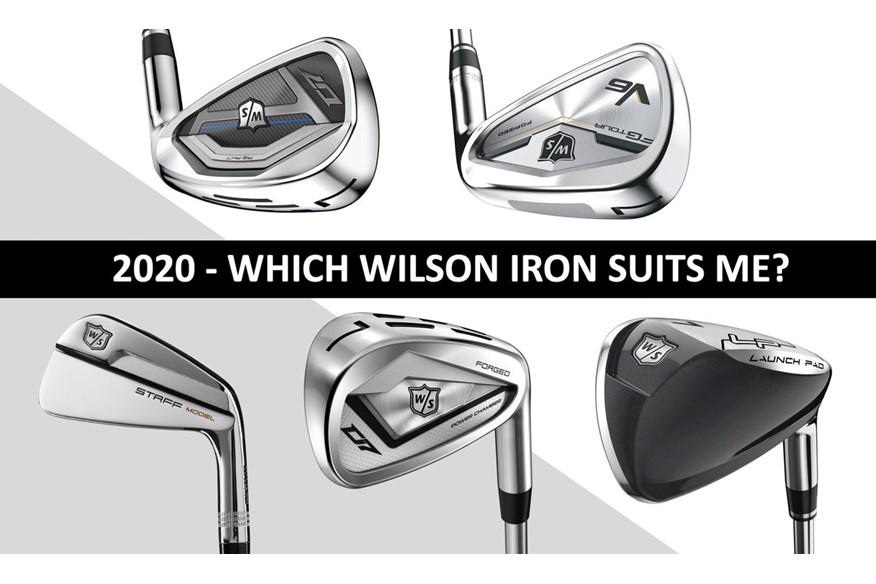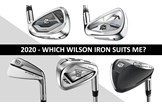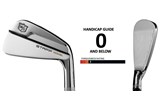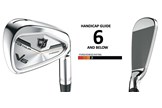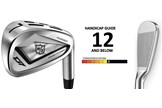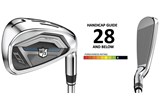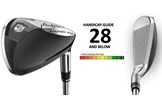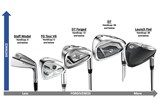Which Wilson iron suits me?
Last updated:
Which Wilson irons should I buy? Your guide to each iron in Wilson’s line-up, and who they are aimed at.
Most major brands have five, six or even seven irons in their 2020 line-ups, which shows the importance of having solutions for all golfers, irrespective of ability or personal preference. Choices range from slimline musclebacks to hollow heads and cavity backs, and while some are forged, others have springy faces just like a driver.
RELATED: Distance, performance and control in Wilson’s new D9 range
So with such a huge amount of choice out there, we felt it was far too easy for golfers to get confused about which model best suits them. Even golfers who have a good idea of which iron suits them probably don’t realise what they put on the line in terms of ball speed, carry and forgiveness by choosing a set above their station.
TESTED: Best Forged Irons
So as 2020’s irons hit pro shop shelves, we felt the time was right to show how a brand’s whole iron range compares against each other.
As well as launch monitor data from our pro, we’ve given every iron a forgiveness rating and a handicap guide to spell out simply what sort of players should be considering what sort of models, and why.
RELATED: Which TaylorMade iron suits me?
Wilson Staff Model iron
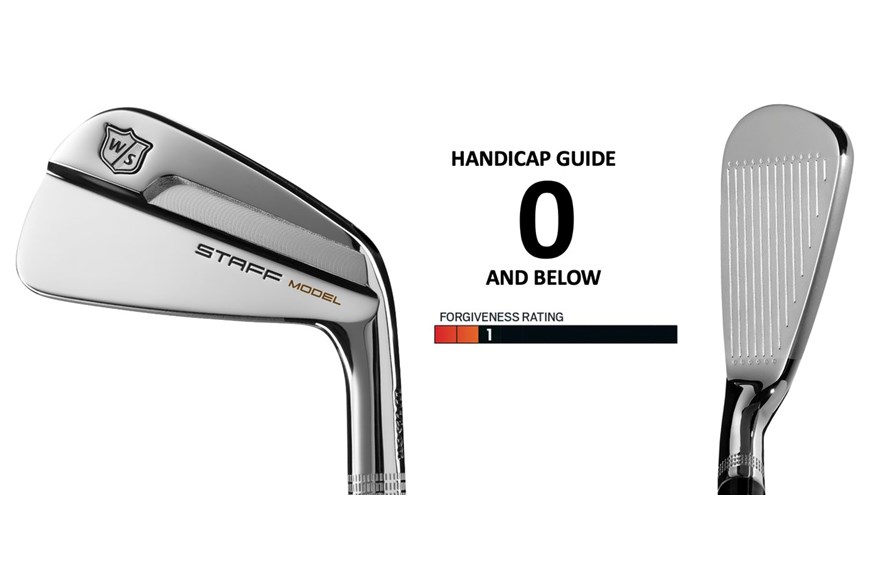
RRP: £899
Construction: One-piece forged from 8620 carbon steel
Who are they for?
Well, Gary Woodland won the 2019 US Open playing a set of these, which pretty much tells you everything you need to know. As far as we’re concerned, they’re for superb ball strikers only.
As blades go, the Staff model is a cracking looking head with some old school detailing which, if you’re a blade fan, represents really good value for money in the current climate. It was also the longest muscleback we tested this year.
RELATED: Which Callaway iron suits me?
Wilson FG Tour V6 iron
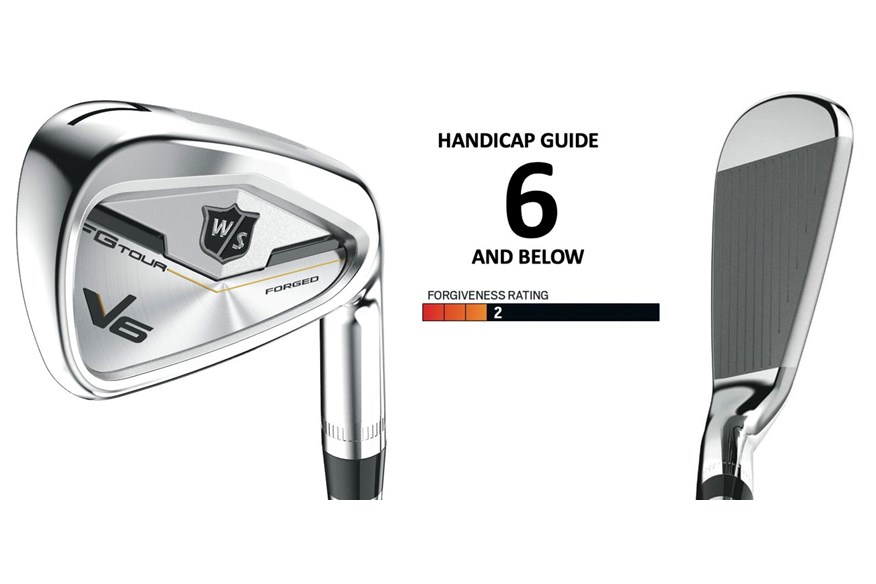
RRP: £699
Construction: One-piece forged from 8620 steel
Who are they for?
The V6 are a few years old and while the straight-edged heads are lovely, with a very weak 35° 7-iron loft, we reckon golfers who’ll really want a set of these tiny-headed players cavity irons are likely to be few and far between.
By choosing a set over the lovely D7 Forged you’ll be giving up seven yards in 7-iron carry, which for a club that our data highlights as being less forgiving, isn’t a trade-off many golfers will be willing to make. Still, a lovely forged feel set if you’re good enough to use them.
TESTED: Best Irons
How Wilson irons compare in data
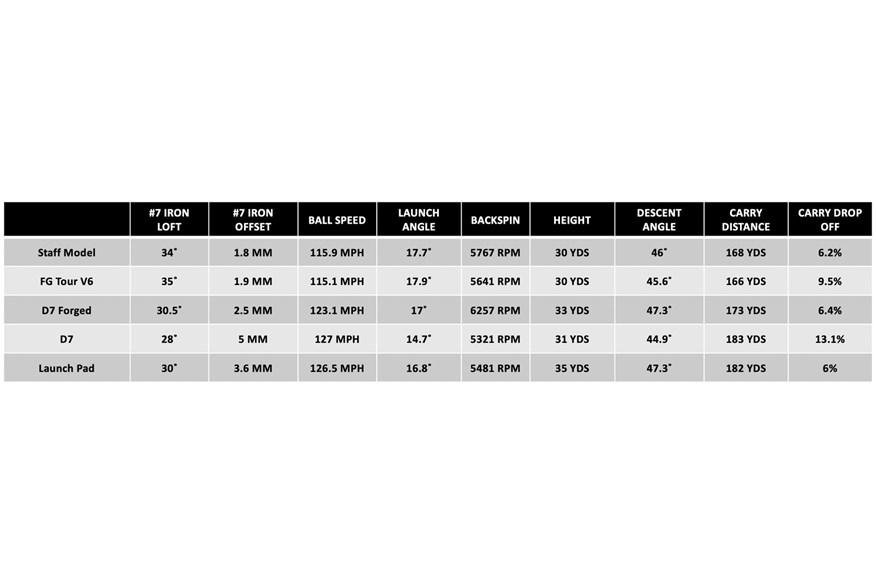
Wilson D7 Forged iron
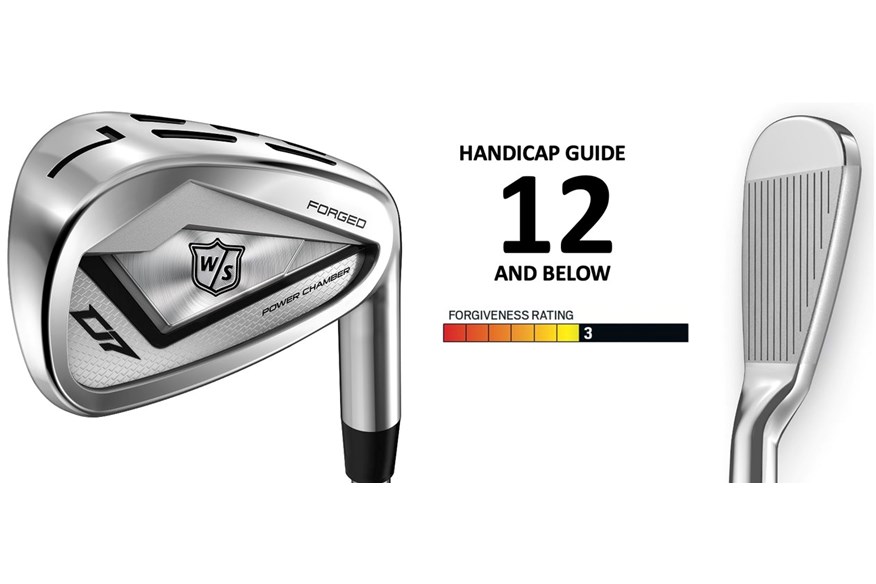
RRP: £599 (s) £699 (g)
Construction: Forged 8620 face with cast body
Who are they for?
The D7 Forged are a brand new iron for 2020 and not only are they a lovely looking model, they’re also pretty powerful from what are essentially standard lofts nowadays. An excellent mix of fast face technology, alongside a head that’s not too big or offset. Performance-wise, see them alongside Ping’s i500, TaylorMade’s P790 and Callaway’s Apex and you won’t go far wrong.
Hopefully, you shouldn’t be confused between these and Wilson’s D7 – which very much is a distance-orientated game-improver model. But if you are, our data has you down as giving up 10 yards of 7-iron carry to play the D7 Forged, which for most mid handicappers and above won’t be a trade-off worth making.
Thanks to a significantly lower price than most forged models D7 Forged are a brilliant value option, too.
TESTED: The most forgiving irons
Wilson D7 iron
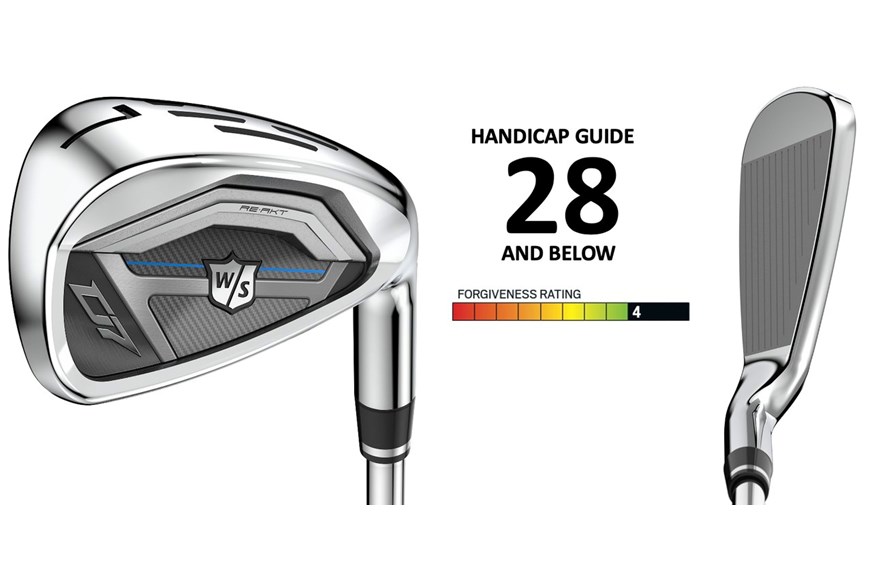
RRP: £469 (s) £599 (g)
Construction: Cast stainless steel
Who are they for?
Any golfer who puts a high premium on distance and forgiveness, and isn’t overly concerned about what they give up in terms of size and shape to get it.
The heads are oversized with wide, rounded soles, and it’s exactly these traits that allow Wilson’s engineers to decrease loft (for more ball speed) without unduly affecting launch, spin and decent angle. And because Wilson’s “D” family has always been about lightweight performance, you get the same lightweight steel shaft as the Launch Pad iron.
That means you not only get extra help rinsing club speed from your swing, but they’re also reasonably high launching to maximise carry, too. A long and powerful iron choice.
RELATED: Wilson’s Staff Model R golf ball is unpainted!
How do they compare – Handicap Guide
Brands hate giving an indication of which handicap of golfer each iron typically suits, as it pigeon-holes their models. We’ve given each a handicap guide below though to help ensure you buy the set most suited to your ability.
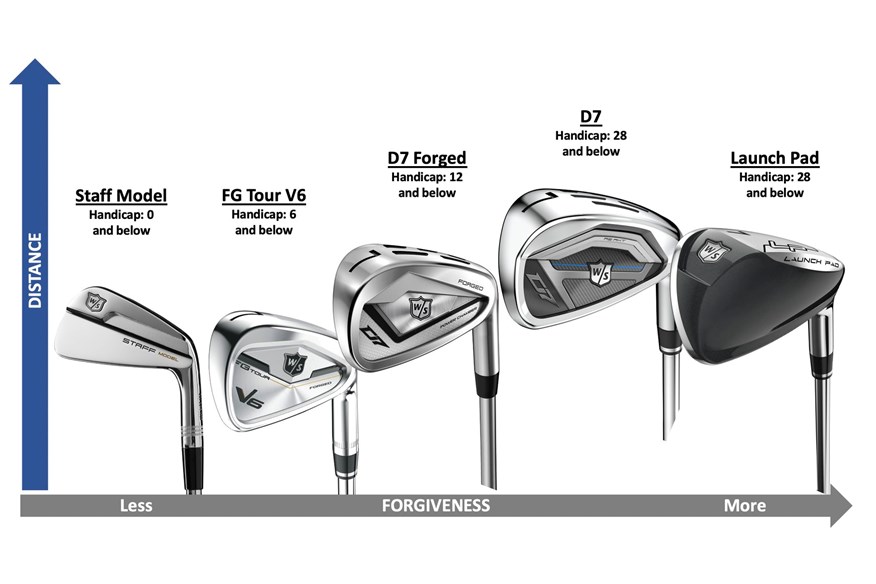
Wilson Launch Pad Hybrid iron
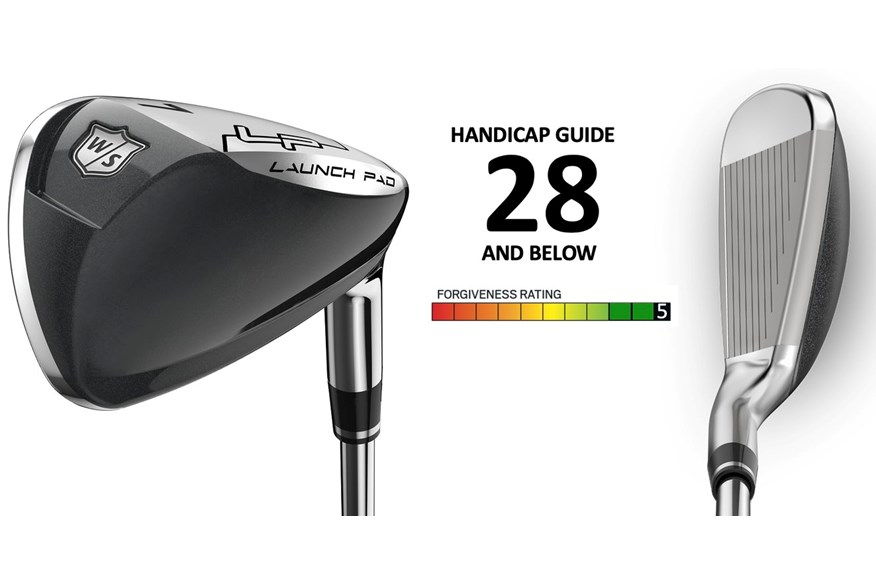
RRP: £549 (s) £645 (g)
Construction: Cast hollow body
RELATED: Which Ping iron suits me?
Who are they for?
You don’t have to be a brilliant golfer to enjoy golf, and a raft of new lightweight and hybrid iron ranges that focus on maximising fun and pleasure are a really good choice for infrequent golfers. It came as no surprise the Wilson Launch Pad (and Cleveland’s Launcher HB Turbo) were not only the two most forgiving super game-improver irons in our Top Gear testing, but they’re also right among our most overall forgiving irons of the year, too.
Wilson’s Launch Pad have wide hybrid-like hollow bodies, which puts more weight low and deep, helping flights shots from the turf, but also ensuring very little drop in backspin, so you get a steep landing angle which means soaring shots drop and stop on the green.
They’re a brilliant option if your iron game is pretty inconsistent and/or your swing speed has dropped just below average.
